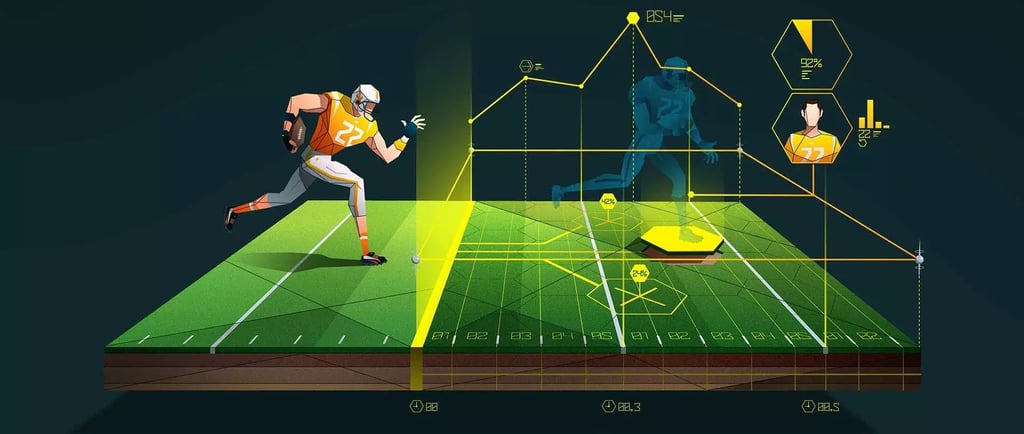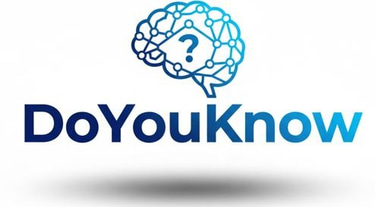Do You Know How AI Sports Coaches Are Revolutionizing Athlete Training
Artificial Intelligence is entering the world of sports, acting as digital coaches that track, analyze, and optimize athlete performance. From predictive injury prevention to personalized training, AI sports coaching is transforming how champions are built.
TECH & SCIENCEENTERTAINMENT & SPORTS
Do You Know Team
8/30/20253 min read


Sports have always been a blend of talent, discipline, and strategy. But in today’s era, technology is rewriting the rules of the game. Just as data analytics transformed cricket, football, and basketball, Artificial Intelligence (AI) is now stepping in as the ultimate coach—a digital guide capable of analyzing every move, predicting performance outcomes, and even preventing injuries before they happen. Across the globe, teams and individual athletes are adopting AI sports coaching platforms that combine data collection, biomechanics, and real-time insights. The result? Smarter training methods, improved recovery, and a significant edge in competitions. Let’s explore how AI is shaping the champions of tomorrow.
1. The Rise of AI in Sports Coaching
AI has moved beyond simple fitness trackers. Today’s AI coaches use wearable devices, motion sensors, and video analysis to generate real-time performance feedback. Instead of relying solely on human observation, athletes now have access to thousands of data points, such as stride length, heart rate variability, and energy expenditure. Professional teams like those in the NBA, Premier League, and even Olympic training centers are already using AI systems to measure split-second decisions, muscle fatigue, and movement efficiency—factors impossible for the human eye to track with such precision.
2. Personalized Training Like Never Before
Every athlete’s body is unique, and AI coaching platforms understand this better than one-size-fits-all training programs. By analyzing individual data, AI designs customized workouts that cater to an athlete’s strengths and weaknesses. For instance, a sprinter may get AI-generated insights on explosive speed drills, while a footballer might receive specialized stamina and agility routines. This level of personalization ensures maximum improvement while minimizing risks of overtraining.
3. Predicting and Preventing Injuries
One of the most revolutionary roles of AI sports coaches is injury prevention. By analyzing body mechanics, AI can detect early warning signs of stress injuries or muscle strain. Imagine an AI system warning a marathon runner that their running gait is increasing stress on their knees, weeks before an actual injury occurs. This proactive approach saves careers, keeps athletes at peak performance, and reduces costly downtime for professional teams.
4. Game Strategy and Opponent Analysis
AI coaching isn’t limited to physical training—it’s also shaping mental and strategic preparation. Using vast amounts of historical match data, AI can identify an opponent’s weaknesses, preferred strategies, and gameplay patterns. For example, an AI system might analyze hours of video to conclude that a tennis opponent consistently struggles against backhand shots. Coaches and players can then design strategies to exploit such insights—giving them a tactical edge.
5. AI Coaches and the Psychology of Sports
Mental resilience is as important as physical training. AI-powered platforms are now tracking stress levels, sleep patterns, and emotional responses through biometrics. Some advanced systems even act as virtual sports psychologists, helping athletes maintain focus, manage pressure, and enhance decision-making in high-stakes moments. With mental strength being the fine line between victory and defeat, AI is becoming an invaluable asset.
6. The Future: Virtual and Augmented Reality Training
The future of AI sports coaching will merge with VR and AR technologies, allowing athletes to train in simulated environments. A boxer could practice dodging AI-generated punches, while a football player might rehearse strategies in a virtual stadium. This immersive training will create endless possibilities for safe, repeatable, and data-backed practice sessions—a game changer for sports worldwide.
FAQ – AI Sports Coaches
Q1. Can AI replace human sports coaches?
No. AI enhances coaching by providing data-driven insights but human intuition, emotional support, and strategic creativity remain irreplaceable.
Q2. How does AI prevent injuries in athletes?
AI tracks movement, posture, and muscle stress to identify patterns that may lead to injuries, allowing early intervention.
Q3. Is AI coaching only for elite athletes?
Not anymore. Fitness apps and AI-based platforms are becoming affordable for college athletes, gym-goers, and even casual runners.
Q4. Which sports are adopting AI coaching fastest?
Cricket, football, basketball, tennis, and athletics are leading the adoption, but almost every sport is beginning to integrate AI.
Q5. Does AI coaching also track diet and recovery?
Yes. Many AI platforms monitor sleep, hydration, and nutrition, ensuring athletes recover properly between sessions.
Conclusion
AI sports coaches are no longer a futuristic dream—they are the present reality of athlete training. From real-time feedback and injury prevention to strategy development and mental resilience, AI is transforming the way athletes prepare for victory. While human coaches remain irreplaceable for motivation and leadership, AI is becoming their most powerful assistant, giving athletes the extra push needed to outperform their rivals. In the coming years, expect to see more championships and medals influenced by the silent guidance of AI-powered coaches.
#AISports #SportsTechnology #AthleteTraining #ArtificialIntelligence #SportsInnovation #FutureOfSports #InjuryPrevention #PerformanceAnalytics
Knowledge
Empowering minds with reliable educational content daily.
Newsletter Signup
© 2025 DoYouKnow. All rights reserved.
Stay Ahead of the Trends – Join Our Newsletter
